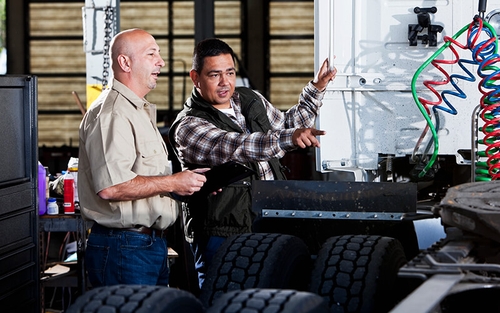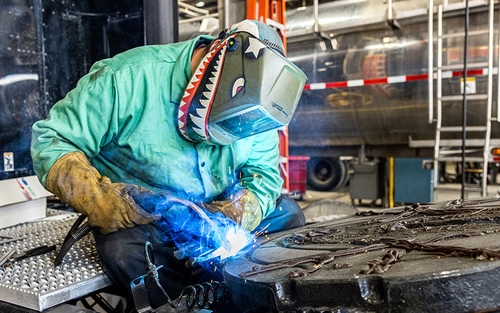Estimated reading time: 2 minutes
There are several paths you can take to become a diesel technician, depending on what type of technical training you want to pursue and how soon you want to start working in the industry.
In this blog, we’ll break down how long it takes to become a diesel technician based on the route you choose.
How long does it take to become a diesel technician?
How long it takes you to become a diesel technician depends on whether you:
- Enter the field after graduating high school.
- Pursue post-secondary training, such as going to a technical or community college.
If you choose to enter the field after graduating high school, you can leverage on-the-job training and start working as a diesel technician as soon as you find a job.
If you decide to pursue post-secondary training, you can start working as a diesel technician once you complete the program you enroll in.
How long is diesel technician school?
How long it takes you to complete diesel technician school will depend on what school you go to and what kind of degree you obtain.
- Associate degree in diesel technology: Typically takes two years to complete.
- Technical diploma in diesel technology: Generally takes one to two years to complete.
- Certificate in diesel technology: Usually takes a couple of months to one year to complete.
What is the difference between an associate degree, a technical diploma and a certificate in diesel technology?
In addition to the time it takes to complete each program, the biggest difference between earning an associate degree, a technical diploma and a certificate in diesel technology are the requirements.
Associate degree
While all three include hands-on technical training, an associate degree usually also requires general education classes in core subjects, which is why it takes the longest to complete. These core subjects include:
- English.
- Math.
- Science.
- Social science.
Earning an associate degree allows you to:
- Receive a well-rounded education.
- Earn a higher starting pay when you graduate.
- Have more office job options and career advancement opportunities.
Technical diploma
A technical diploma includes some general education classes but doesn’t usually require as many credit hours as an associate degree.
Earning a technical diploma allows you to:
- Earn a higher starting pay than those with a certificate, but possibly less than those with an associate degree.
- Complete the program faster than an associate degree does.
- Have opportunities for shop leadership roles.
Certificate
Unlike the other options, a certificate does not include general education classes and typically requires the fewest credit hours.
Earning a certificate allows you to:
- Start your career sooner.
- Spend less money on tuition than the other two options.
- Get training in specialized areas, like certain truck brands or systems.






